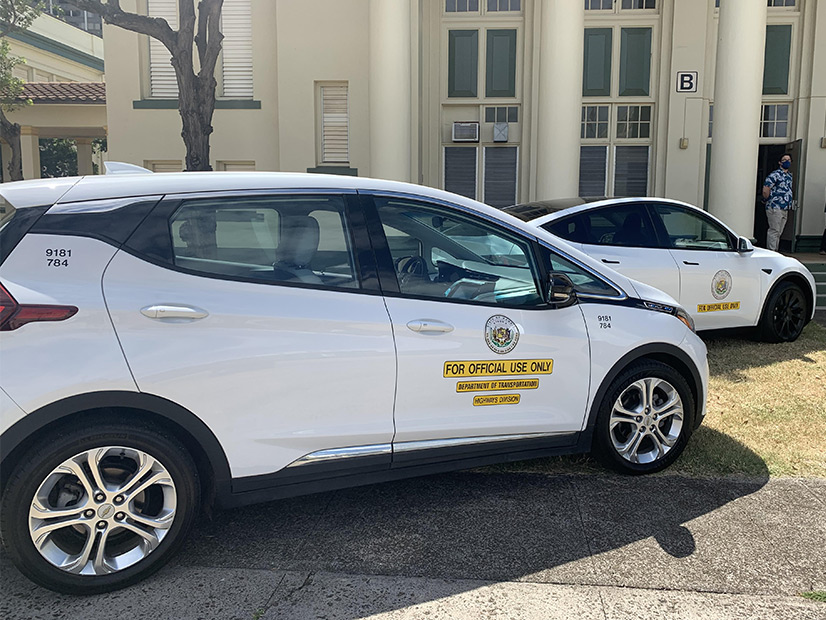Hawaii Gov. David Ige last week signed three bills into law to encourage electric vehicle adoption in both the public and private sectors.
Ige signed HB 552, HB 424, and HB 1142, all of which are designed to help the state achieve carbon neutrality by 2045 through transportation measures. HB 552 notes that “the transportation sector accounts for the use of over two-thirds of the oil imported into the State.”
HB 552 requires all state agencies to transition their passenger and light-duty vehicles to a zero-emission fleet by 2035, a process that will be coordinated by the state’s Department of Transportation (DOT) and Hawaii State Energy Office. The bill requires the DOT to purchase only zero-emission passenger vehicles starting Jan. 1, 2022, and only zero-emission light-duty vehicles “as soon as practicable but no later than” Jan. 1, 2030. The state comptroller can make exceptions if “zero-emission vehicles are demonstrated to be cost-prohibitive on a lifecycle basis or unsuitable for the vehicles’ planned purpose, or if funds are unavailable.”
HB 424 requires any state official renting a car on official business to rent an electric or hybrid vehicle if available and requires them to use the minimum cost fuel to save funds. The bill does say, however, that state agencies can forego this requirement if the rate of renting an electric or hybrid vehicle versus a fossil fuel vehicle is not “comparable,” and if a higher rate interferes with budget constraints.
HB 1142 allocates 3 cents from the state’s barrel tax to fund the installation of EV charging stations. The funds will be directed to the state’s rebate program for installing EV charging stations, which was established in 2019 but has since become depleted of funds. The bill notes that the program “has proven to be very successful, with more than 70 new charging systems installed or in the pipeline,” and that use of the barrel tax will provide the program with a “sustainable source” of funds.
HB 1142 also notes that some promised EV charging stations were never installed, while others have fallen into disrepair. In response, the bill grants counties the ability to adopt ordinances and penalties to enforce proper installation and repair. It also requires all newly installed EV charging stations to be “level 2 and network-capable.”
The bills were signed into law during a ceremony at Central Middle School on Oahu.
“Even with all the progress that has been made in the last decade, Hawaii is still heavily reliant on imported oil, a majority of which is used in the transportation sector,” Rep. Nicole Lowen, chair of the House Committee on Energy and Environmental Protection and co-author of HB 552 and HB 1142, said during the event.



